Where do UK Stakeholders Align on UN Treaty on Plastic Pollution - INC-3 Report Release
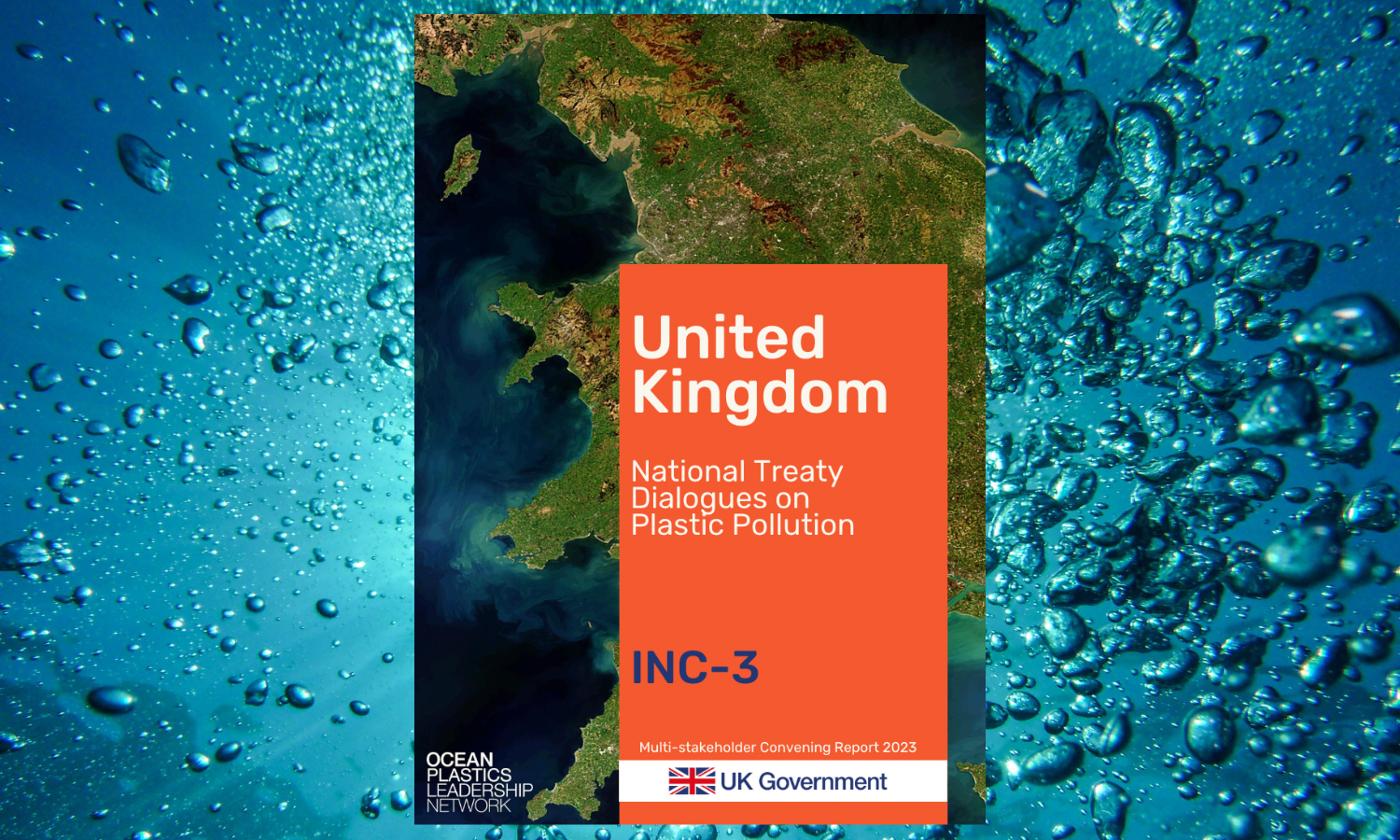
The UK National Treaty Dialogues on Plastic Pollution: INC-3 Report is here!
This comprehensive program report, officially unveiled at the Global Treaty Dialogues: INC-3 Digest on December 13th, 2023, captures a summary of the key takeaways from the UK National Treaty Dialogues on Plastic Pollution. Held virtually from October 20th to November 1st, 2023, these dialogues, hosted by OPLN in collaboration with the UK Government's Department for Environment, Food and Rural Affairs (Defra), aimed to provide crucial insights and key recommendations for the Zero Draft text. The report, capturing discussions from diverse stakeholders, serves as a thorough guide for the UK Government on addressing plastic pollution.
For a detailed overview of the recommendations, you can access the full report here.
These dialogues had two primary objectives:
- Reflect on the intergovernmental negotiation process
- Provide invaluable input informing the UK's stance at the upcoming third meeting of the Intergovernmental Negotiating Committee in Nairobi, Kenya, from November 13th to 19th, 2023.
Facilitated in collaboration with the UK Government, this program is a testament to the synergy between public and private sectors. To provide insights to this partnership, James Smith, Deputy Director for Marine Policy at Defra, shares an opening statement:

"We know how important tackling plastic pollution is for health and the environment. We also know how crucial this new instrument will be in ending plastic pollution globally, and it is hugely important that we continue to work together as negotiations progress to ensure a workable and effective treaty. As founding members of the High Ambition Coalition to end plastic pollution, the UK is dedicated to ending plastic pollution by 2040. The UK strongly values the active and meaningful participation of stakeholders at all stages of the INC process, so we can take on board your expertise, knowledge and experiences to drive forward global change and bring us one step closer to tackling plastic pollution."
We are pleased to announce that the UK Government's Department for Environment, Food & Rural Affairs (Defra) has confirmed its continued support for the UK National Treaty Dialogues on Plastic Pollution programme. In a groundbreaking move, Defra will match funding contributed by industry donors, ensuring a robust initiative in line with the UN Plastics Treaty schedule (2022-2025).
Stay in the know about this development by checking out the official press release here.
Program Structure
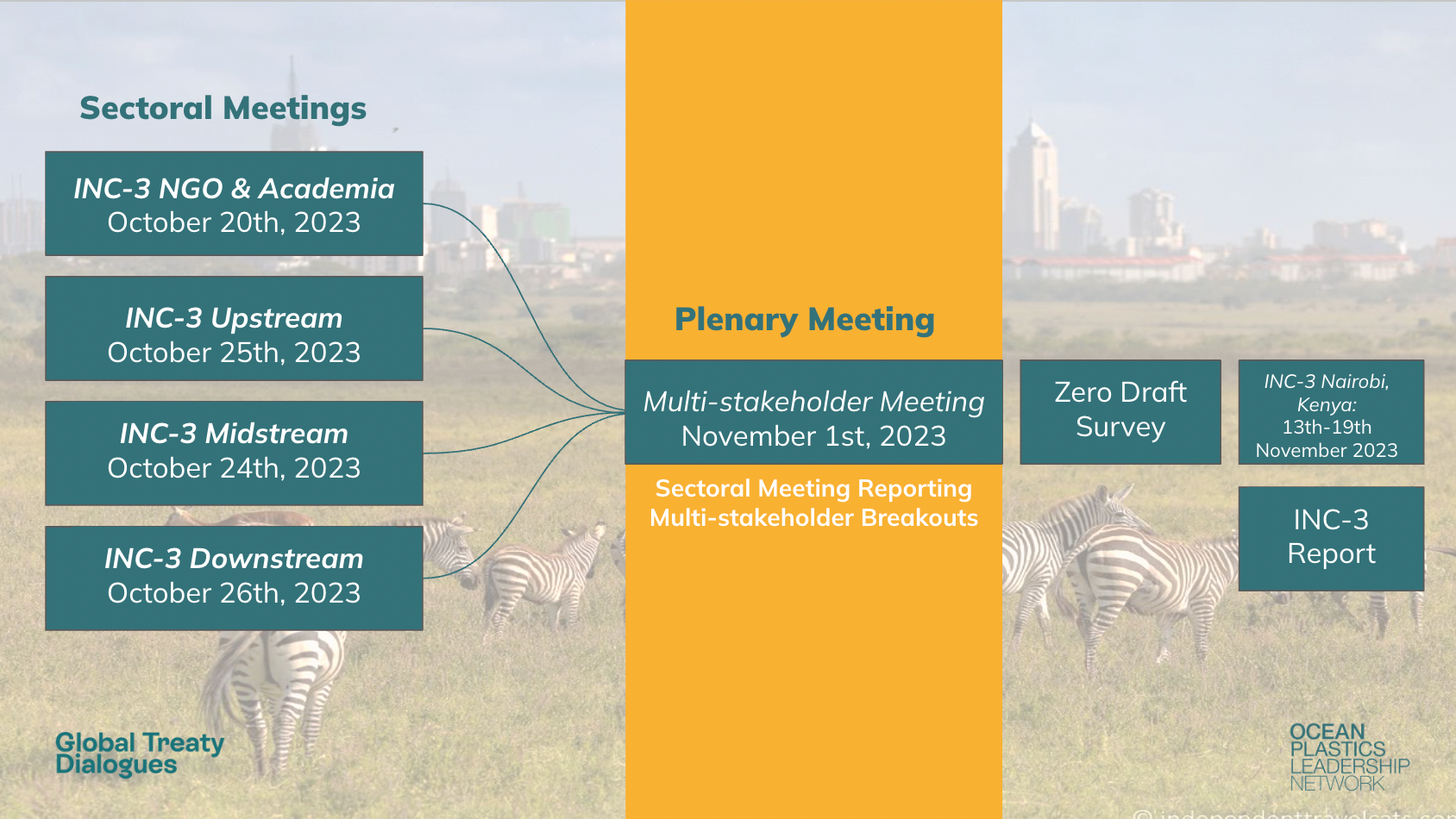
Over a two-week period, stakeholders across the UK plastics ecosystem engaged in four focused sectoral meetings to assess sections of the Zero Draft text. This format aimed to address sector-specific concerns and promote dialogue on crucial topics. The final stage involved a multi-stakeholder plenary session, fostering collaborative discussions that transcended individual sectors, underlining the importance of cross-sectoral solutions.
The UK Dialogues brought together voices and perspectives from 46 impact organizations central to the plastics crisis, including stakeholders from:
- A Plastic Planet
- Alpek Polyester
- Beauty Kitchen
- Berry Global
- British Plastics Federation (BPF)
- Common Seas
- DOW Chemical
- Eastman Chemical
- EMPA: Swiss Federal Laboratories
- Environmental Investigation Agency (EIA)
- Estée Lauder
- Fauna & Flora
- Greenpeace
- INEOS
- Innovate UK KTN
- International Alliance of Waste Pickers
- John Lewis & Partners
- Kimberly-Clark
- Kraft-Heinz
- LEGO Group
- Mars Wrigley
- Matter Industries
- McDonald's
- Minderoo
- Nestlé
- Notpla
- Ocean Conservancy
- Odessey Innovation Ltd.
- Plastics Europe
- Plymouth Marine Laboratory
- SUEZ
- Tearfund
- The Coca-Cola Company
- Unilever
- University of Birmingham
- University of Leeds
- University of Manchester
- University of Plymouth
- University of Portsmouth
- University of St. Andrews
- Waitrose
- World Economic Forum (WEF)
- Women in Informal Employment: Globalizing & Organizing (WIEGO)
- The Waste and Resources Action Programme (WRAP)
- World Wildlife Fund (WWF)
Sectoral Sessions:
Throughout these sessions, the group discussed their individual provisions and potential options based on the Zero Draft, encompassing...
Upstream
- Primary plastic polymers
- Chemicals and polymers of concern
- Problematic and avoidable products, including short-lived and single-use plastic products and intentionally added microplastics
Midstream
- Product design and performance
- Reduce, reuse, refill and repair of plastics and plastic products including fishing gear
- Recycled plastic contents, alternative plastics and plastic products and non-plastic substitutes
Downstream
- Waste management including transboundary movement of plastic waste
- Trade in listed chemicals, polymers and products, and in plastic waste
- Existing plastic pollution,including in the marine environment
E-NGO & Academia
- Monitoring, reporting and effective evaluation
- International cooperation, capacity-building, technical assistance and technology transfer
Each sector explored respective interventions capable of reducing and/or eliminating the potential environmental and social harm associated with each step of the plastics life cycle, and presented outcomes to representatives of the UK government and general audience during the UK Dialogues.
Plenary Session
On the 1st of November 2023, the Plenary session commenced. Guided by James Smith from Defra, this session seamlessly united stakeholders across the entire UK plastics ecosystem. The session was distinguished by a diverse panel of representatives, drawn from each sectoral meeting, offering a comprehensive debrief on their respective recommendations for the Zero Draft text to the engaged audience of 46 participating organizations.
Panelists
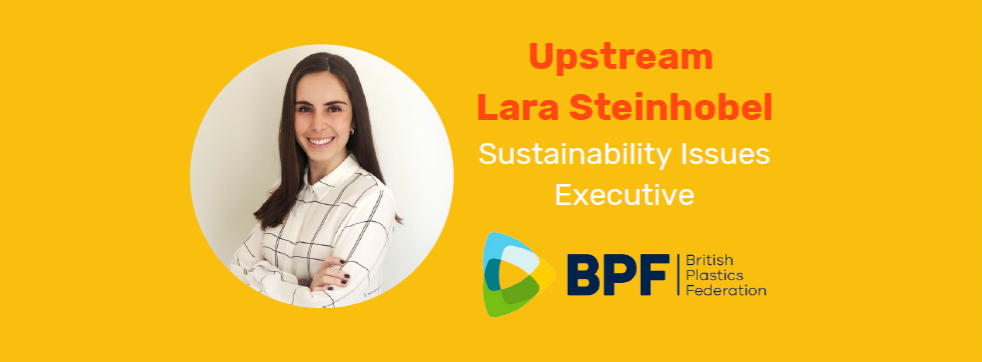

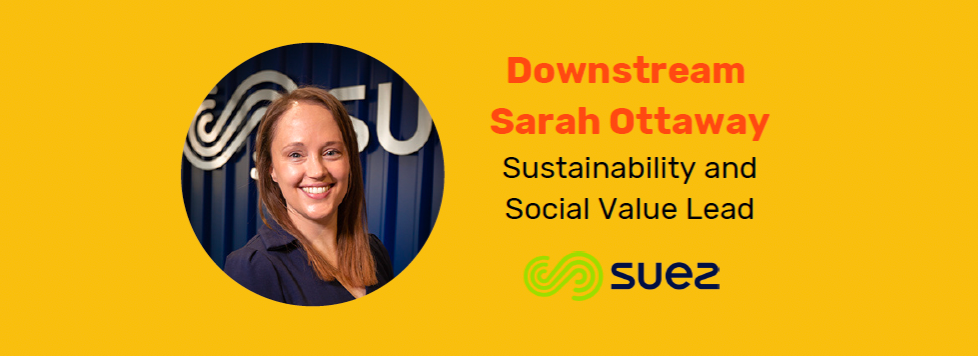
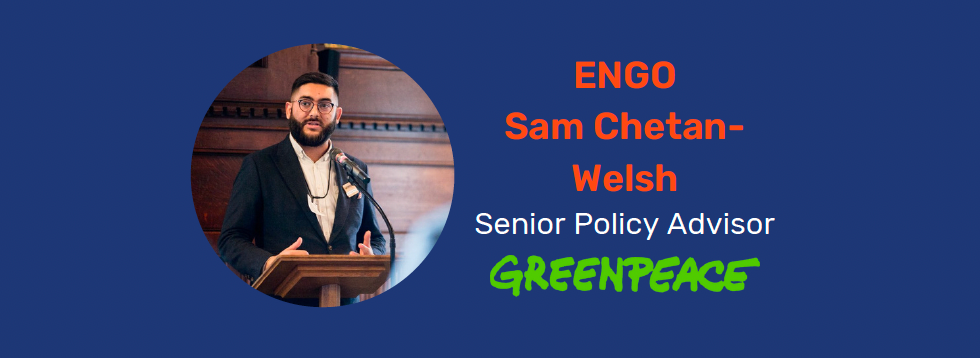
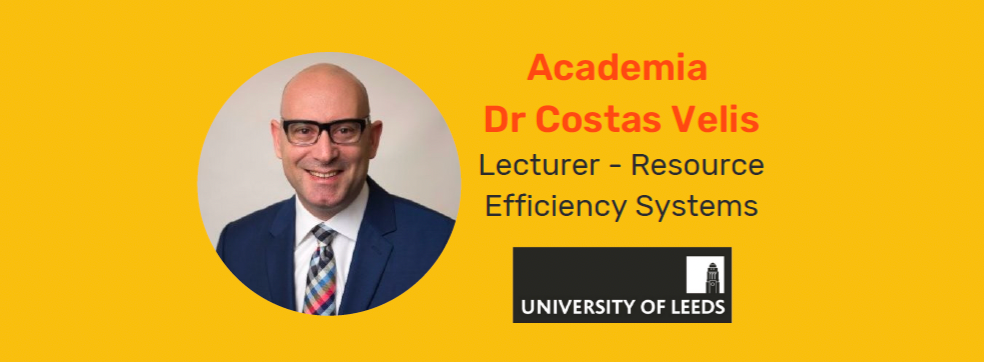
INC-3 Program Summary
OPLN also deployed a sentiment survey to capture further insights from the participants of the dialogues. Based on the multi-stakeholder survey responses we identified 5 cross sectoral areas of alignment:
The Treaty for Plastic Pollution should...
- Monitoring - Introduce measures on reporting that are standardized globally.
- Sectoral Approach - Take a sectoral approach to core obligations.
- Transparency - Introduce global obligations on transparency of plastic products.
- Global Waste Management Infrastructure - Look to create conditions to encourage consistent, equitable and sustainable investments in waste management infrastructure, considering existing global disparities.
- Design Standards - Introduce globally harmonized design standards for plastic polymers and products.
The survey also provided insights into areas of the Zero Draft text which require additional recommendations:
- Funding Mechanisms - Respondents of the survey provided neutral or negative sentiment on leveraging existing funding mechanisms as a modality for UN Treaty means of implementation in the context of management and reporting of funds accrued and dispersed under the instrument.
- Misleading Environmental Claims - Upstream, Downstream, NGO & Academia respondents agree that the Treaty for Plastic Pollution should address greenwashing and misleading environmental claims on alternative plastics.
- Production - The survey results show that industry respondents lack alignment around production caps and establishing targets for virgin polymer production in some form.
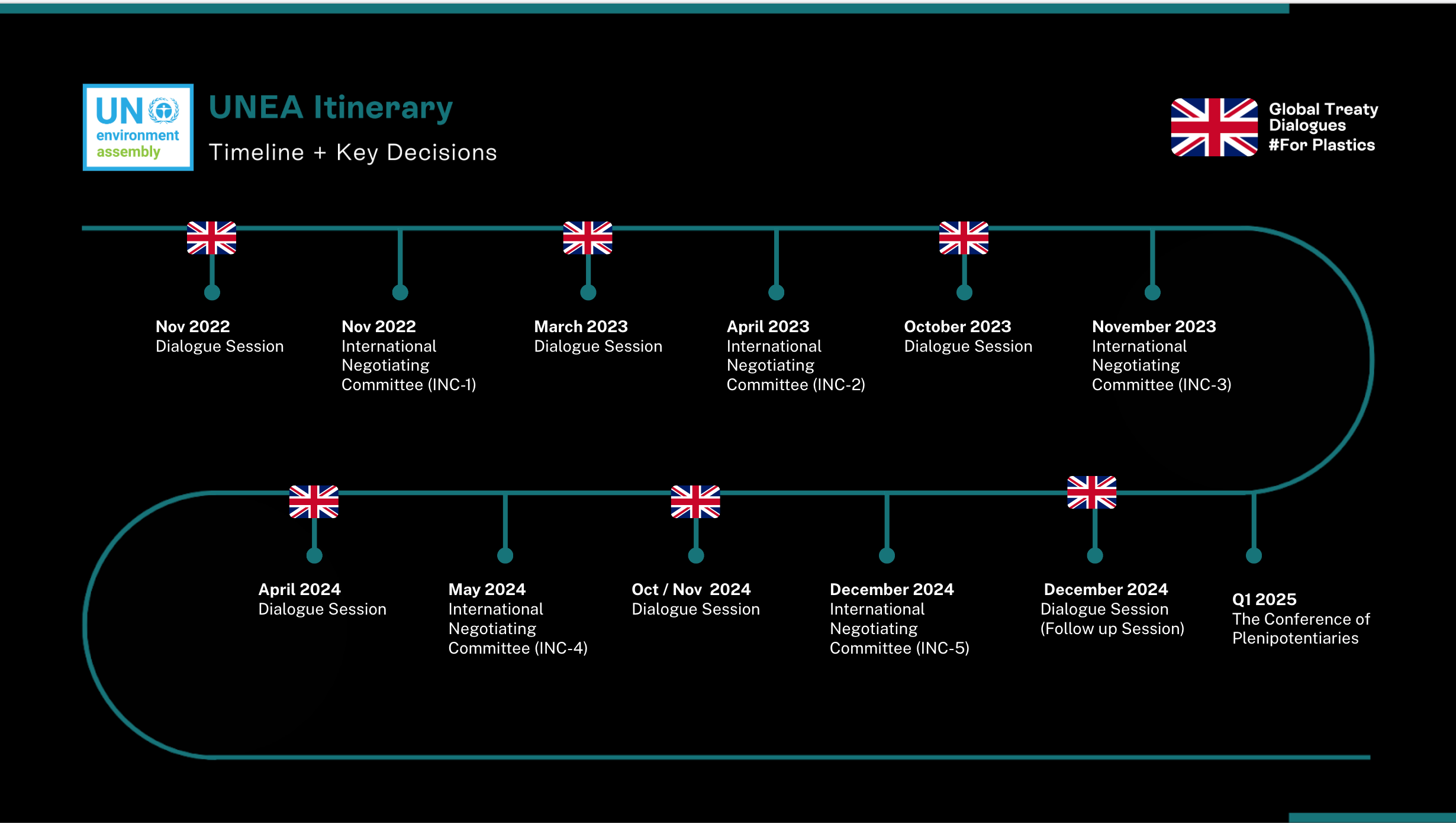
The UK Treaty Dialogues is a two year program in partnership with the UK Government in conjunction with each International Negotiating Committee. OPLN continues to expand its reach of stakeholders in anticipation of future dialogues convening. If you’re interested in learning more, contact Marta Fiscina at marta@eqonetworks.com.